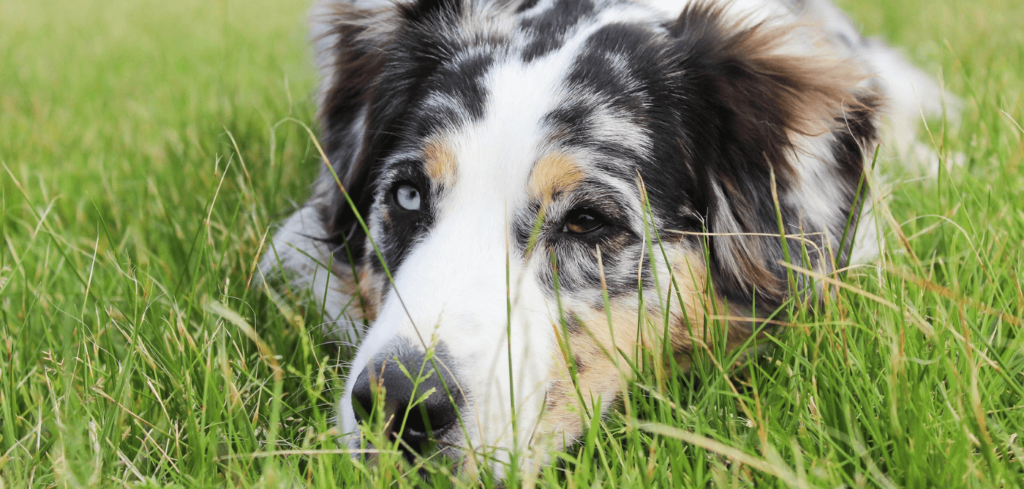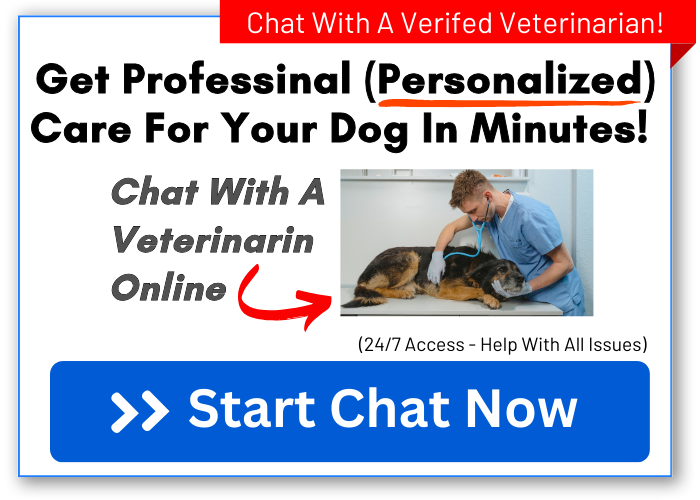
Whenever our beloved pets eat something that might harm them, it sparks a furious google search to determine what our next steps should be…
Accidents happen, and if your dog is young or still in the process of being trained they might grab things off the counter, coffee table, or off the floor…

This can be dangerous when it comes to certain foods, especially anything with a bone, like wings or ribs, but what if your dog ate cheese?
In this article we’ll answer if dogs can eat cheese and specifically, we’ll be covering the following information…
- Is Cheese Bad For Dogs?
- What If My Dog Ate A Lot Of Cheese In One Sitting?
- Some Dogs Should Not Eat Any Cheese (Even As A Treat)…
- How To Stop Your Dog From Eating Cheese…
In the end, you’ll know if eating cheese is harmful or not for your dog, and you’ll know what you need to do to stop your dog from eating large amounts of cheese in the future…
Let’s get started!
Is Cheese Bad For Dogs?
The short answer is no, unless your dog is lactose intolerant (yes they can suffer from this ailment just as we can) with the exception of bleu cheese…
Bleu cheese contains a type of mold that can make dogs very ill, but other types of cheese are generally okay in small amounts…

The fungus used to create bleu cheese creates a substance called roquefortine C, and most dogs are sensitive to it…
If ingested, roquefortine C can cause seizures, fever, vomiting, and diarrhea, so you’ll definitely want to contact a veterinarian as soon as you can…

Some cheeses also contain added flavors such as onion or garlic which are extremely harmful to dogs as well. So again, you’ll want to contact a vet…
But those things aside, cheese in moderation can be good for your dog, just like it can be good for us humans…
Some dog parents like to use cheese as a treat or a reward while they’re training, and some even use a cube of cheese to hide pills or tablets which makes it a little easier for your dog to take his or her medicine…
But just because cheese isn’t inherently toxic to your dog doesn’t mean it should be included in their daily diet…
The best way to make sure your dog is healthy is to feed him a balanced diet specifically made for dogs…
Wet or dry dog food that is labeled as ‘nutritionally complete’ is usually a good indicator of what your pup should be eating…
But if you’d like a more detailed idea, I recommend you click the link below to check out an extremely healthy and delicious dog food…
>> Click Here To Learn About A Healthy, Simple & Delicious Dog Food That Your Dog Will Love!
Cheese should not be used as any part of your dog’s daily diet, but like I mentioned, small cubes can be used as training rewards, special treats, or as a way to distribute medicine…
And since cheese is packed full of vitamin A, B-complex vitamins, and calcium, a piece of low-fat mozzarella here or there certainly won’t hurt your dog in the long run, as long as he doesn’t have a medical issue.
What If My Dog Ate A Lot Of Cheese In One Sitting?
There is no set amount of cheese considered safe for your dog, especially if they’re sensitive to lactose…
…but if your dog ate a pound of cheese or that brie you’d set up for the dinner party, there might be a little cause for alarm.
In the event that your dog is lactose intolerant, the best course of action is to get him to a vet right away so they can try to induce vomiting…

Otherwise, you’re likely in for a rough 24 hours. Dogs will typically have gastrointestinal distress, vomiting, and diarrhea as their bodies process a large amount of cheese…

Usually, they’ll come out fine on the other side, but don’t hold your breath thinking that your dog has learned his lesson…
Your dog will do it again if given the chance because cheese is delicious!
Some Dogs Should Not Eat Any Cheese (Even As A Treat)…
Cheese is high in fat and made from milk so there are certain cases where dietary precautions should be taken…
If your dog is overweight then forgo the cheese and opt for a leaner snack like chicken, tuna, or even a piece of ham…
Lactose intolerant dogs or dogs with a dairy allergy also shouldn’t partake in cheese, milk, ice cream, or anything similar either…

Additionally, dogs with delicate stomachs, kidney issues, or dietary restrictions, including the prescription foods from vets especially, shouldn’t partake in any cheese, no matter how little the amount…
Dog-friendly treats are a good ‘go-to’ item in place of cheese if you want to pamper your pup, and they take all of the guesswork out of the equation.
Cheese Flavored Treats For Dogs…
If your dog really likes cheese but suffers from a medical issue that prevents him from eating it…
…cheese is a pretty common flavor for dog biscuits, chews, and specially made filling for Kong brand toys.
It is important to note that the filling made by Kong is specifically designed for dogs and cannot be swapped out for something like Cheeze wiz…
If you just can’t stop your dog from stealing pieces of cheese here and there, a good middle ground for the both of you is to invest in cheese-flavored treats and toys while you keep the real thing hidden under lock and key.
How To Stop Your Dog From Eating Cheese…
No one really wants their dog to snatch food off their plate, cheese or otherwise, so the best way to keep your fur baby safe is to work on training…
Teaching the ‘leave it’ or ‘drop it’ command at a young age is the best way to keep your dog from ingesting people’s food, whether it’s dropped on the ground or given to them…

This is also a great skill for them to know to keep them from eating harmful substances, wild animals, or inedible objects such as socks and shoes (all things that can be more dangerous than a piece of cheese swiped off the floor)…
After your dog has mastered ‘leave it’ or ‘drop it’ another great skill to teach is leaving plates alone even when you aren’t in the room…
If you need help training your dog in this way, I recommend you check out the Brain Training For Dogs system…
I like it because its highly effective, easy to follow, and you can access the program from the comfort of your own home…
If you’d like to learn more about how Brain Training For Dogs can help you train your dog to be more obedient and to follow your commands, click the link below…
>> Click Here To Learn More About Brain Training For Dogs!
In addition to that, never reprimand your dog for snatching something off your plate, even though it can be extremely frustrating…
Punishing your dog for acting on instinct does very little to stop the problem and can actually create more problems down the road…
If you really want to stop the problematic behavior the best way to do that is to train them properly and to monitor yourself…
Don’t leave plates down where they can reach them, and you can also consider putting your dog in their crate when you’re cooking or eating…
You can also give your dog some time outside in a fenced-in yard while the kids are eating to help avoid temptation.

Final Thoughts…
A dog is a member of your family, even if they can’t communicate or understand you as directly as your other loved ones, and it’s up to us to make sure they stay safe…
But for most dogs, a little bit of cheese here and there really isn’t a problem…
Just be sure that your dog is not lactose intolerant or has a dairy allergy, and as with anything, keep moderation in mind if you decide to use cheese as a treat, reward, or occasional snack.